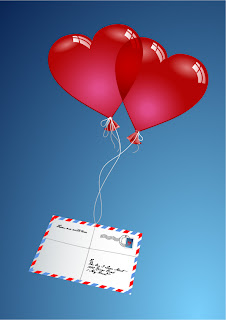Traditional British and Irish Surnames
Have you ever wondered how your surname or family name
originated? Do you have an unusual name
or are you a Jones or a Smith? I just
started wondering how the most traditional surnames in the Britain and Ireland
came into use, and after a bit of research I came up with a few answers!
Some surnames can be described as “occupational names”, they
describe the occupation of the original bearer of the name. There are many,
many examples of this type of surname still in common usage, such as Cartwright
(a maker of carts), Cooper (a barrel maker), Harper (who played or made harps),
Page (a junior servant) and Ryder (who would have delivered message on
horseback). Still the most popular
surname in England and Wales, Smith is a fine example of an occupational name. Many people believe that this name originated
for those who worked as blacksmiths, but it is generally now accepted that a
smith traditionally described all mechanical workman, including those who
worked with wood as well as those who worked with metal. Given the number of
Smiths to be found I believe this is the most likely explanation!
Other surnames are based on the first name of a person’s
father, grandfather or an even earlier family member. These are called
patronymics, and were particularly popular in Wales where a person’s baptismal
name would be linked to their father’s baptismal name by the prefix “ap”, or “ab”
(son of), or ferch (daughter of). So if
John had a son called Rees, Rees would become Rees ap John, if Rees later had a
son Evan, he would be called Evan ap Rees etc.
Early records suggest “ap” was also used in Scotland, alongside the Gaelic
“Mac” also meaning “son of”.
This tradition started to die out in the reign of King Henry
Viii (1509 – 1547), when it became more fashionable to have a fixed family
name. The modern development of surnames based on the patronymic system, can
often be identified when you see an “s” added to a traditional first name. This
too suggests “son of”, so all you Jones can be sure you have an ancestor called
John, whereas if you are a Roberts you will find a Robert if you look hard
enough etc. Alternatively, the “son” may
just be added to the name as in the surnames Stephenson or Johnson.
Surnames in Ireland are also mainly based on patronyms. The prefix “Mac” represents “son of” whilst “O’
” indicates “grandson of”. In this way we arrive at many popular names
such as O’Neil and O’Sullivan. Murphy is a common Irish surname which
translates to Gaelic as MacMurchadh (son of Murchadh) or O’Murchadh (descendant
of Murchadh). Not all traditional Irish surnames follow this
route and some can be seen to arrive from nicknames such as “Kelly” meaning
bright headed and “Ryan” meaning King.
In Scotland many surnames are the names of Scottish clans,
the powerful families who acquired huge amounts of land. These names, including Campbell and Macdonald
give a shared identity to those bearing them, although there may not necessarily
be a “family” connection, as often those living on the lands acquired by the
clans would adopt the name of their new lords.
Finally, when looking at traditional British and Irish surnames
there is one more influence that cannot be overlooked, and that is the region,
area or Country of your ancestors’ birth.
Just think of names like Fleming, Scott, Devon, Oxford or Carlisle.
One thing is certain; if you have a traditional British or
Irish surname you are holding the key to finding out more information about
your ancestors. This maybe a name, a
place, an occupation or a nickname of theirs, but you are carrying a little bit
of them into the future with you. What a
nice thought!
Don’t forget, if you are interested in improving your
written English, please visit our website at www.writtenenglishcorrected.com




